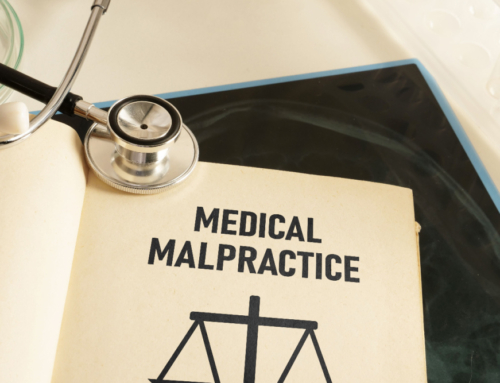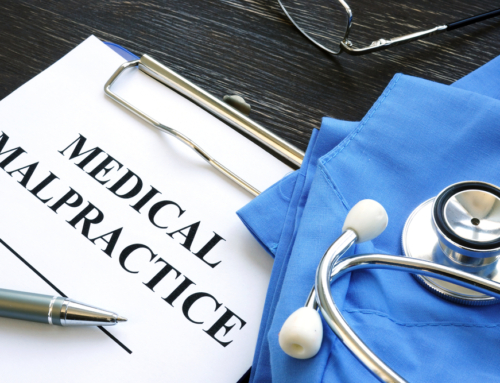Medical malpractice can have devastating effects on your health, finances, and overall quality of life. When a trusted healthcare provider fails to meet the standard of care, the consequences can be life-altering. At Payas, Payas, and Payas, we understand the challenges victims of medical malpractice face and are committed to helping you seek justice. In this comprehensive guide, we’ll outline the steps you should take if you believe you are a victim of medical malpractice, ensuring that your rights are protected and your path to recovery is supported.
Understanding Medical Malpractice
What Constitutes Medical Malpractice?
Medical malpractice occurs when a healthcare provider’s negligence harms a patient. This negligence can take many forms, such as misdiagnosis, surgical errors, medication mistakes, or failure to provide appropriate treatment. The healthcare provider’s actions must fall below the accepted standard of care that a reasonably competent professional would have provided under similar circumstances to qualify as medical malpractice.
For example, if a doctor fails to diagnose a serious condition despite clear warning signs or makes an error during surgery that results in permanent damage, these actions may constitute malpractice. However, not every negative medical outcome qualifies as malpractice. It’s essential to prove that the provider’s negligence directly caused your injury or worsened your condition.
Common Types of Medical Malpractice
Medical malpractice encompasses a wide range of errors and omissions. Some of the most common types include misdiagnosis or delayed diagnosis, where a healthcare provider fails to identify a condition in time to provide effective treatment. Surgical errors, such as operating on the wrong body part or leaving surgical instruments inside a patient, are also frequent causes of malpractice claims.
Other examples include medication errors, such as prescribing the wrong drug or dosage, and birth injuries caused by negligence during prenatal care or delivery. Understanding the type of malpractice you’ve experienced is the first step in building a strong case and seeking the compensation you deserve.
Seek Immediate Medical Attention
Addressing Your Health First
If you suspect that you are a victim of medical malpractice, your immediate priority should be addressing your health. Seek medical attention from another qualified healthcare provider to evaluate and treat any harm caused by the malpractice. This step is critical for your well-being and also ensures that your injuries or complications are documented by an independent medical professional.
For example, if a surgical error has resulted in internal bleeding or infection, timely intervention is essential to prevent further damage. Similarly, if a misdiagnosis has delayed treatment for a serious condition, a new provider can begin the appropriate care immediately. Acting quickly not only protects your health but also strengthens your case by creating a clear record of the harm caused by the initial provider’s negligence.
Obtain a Second Opinion
A second opinion is invaluable in medical malpractice cases, as it provides an independent evaluation of your condition and the care you receive. Another healthcare provider can review your medical history, diagnostic tests, and treatment plan to identify errors or omissions. This expert evaluation can help confirm whether malpractice occurred and guide your ongoing care.
In many cases, the second opinion will also highlight what should have been done differently, providing critical evidence for your claim. Ensure that you choose a reputable and experienced healthcare provider for your second opinion, as their testimony may be crucial if your case goes to court.
Document Everything
Keep Detailed Records
Thorough documentation is essential for building a strong medical malpractice case. Begin by collecting all relevant medical records, including test results, prescriptions, and treatment plans. These records provide a timeline of your care and help establish where the negligence occurred. Additionally, maintain a detailed journal of your symptoms, treatments, and interactions with healthcare providers.
For example, if you’ve experienced ongoing pain or complications after a procedure, note the dates, severity, and any related treatments. These records not only support your claim but also provide valuable context for medical experts and attorneys working on your case.
Gather Evidence of Negligence
Evidence of negligence is a cornerstone of any medical malpractice claim. In addition to medical records, gather any documentation that supports your case, such as correspondence with the healthcare provider or facility. If you suspect that hospital policies or staffing issues contributed to the malpractice, request records related to those areas.
Witness statements can also be powerful evidence. If nurses, technicians, or other staff members witnessed the negligence, their accounts can corroborate your claim. An experienced attorney can help you identify and gather this evidence, ensuring that no critical details are overlooked.
Consult a Medical Malpractice Attorney
Why Legal Representation Matters
Medical malpractice cases are highly complex and require specialized knowledge to navigate. Consulting with an experienced medical malpractice attorney is crucial for understanding your rights and building a strong case. An attorney will evaluate the details of your situation, gather evidence, and consult with medical experts to determine whether malpractice occurred.
For example, proving that a healthcare provider’s actions fell below the standard of care often requires testimony from medical professionals who can explain what should have been done differently. An attorney can also handle negotiations with insurance companies, ensuring that you are not pressured into accepting a low settlement. Without legal representation, you may struggle to secure the compensation you deserve.
Choosing the Right Attorney
Selecting the right attorney is critical for the success of your case. Look for a lawyer with specific experience in medical malpractice claims and a track record of successful outcomes. During your initial consultation, ask about their approach to similar cases, the resources they have for investigating claims, and their willingness to take your case to trial if necessary.
A skilled attorney will provide clear guidance on your legal options and work tirelessly to protect your rights. At Payas, Payas, and Payas, our team of experienced medical malpractice attorneys is dedicated to advocating for victims and ensuring that negligent providers are held accountable.
File Your Claim Within the Statute of Limitations
Understanding Time Limits
Medical malpractice claims are subject to strict deadlines known as statutes of limitations, which vary by state. In Florida, for example, the statute of limitations for medical malpractice is generally two years from the date the injury was discovered or should have been discovered. Failing to file within this timeframe can result in your claim being dismissed, regardless of its merits.
It’s important to act quickly to ensure that your case is filed on time. An experienced attorney will ensure that all necessary paperwork is completed and submitted within the required deadlines, protecting your right to seek compensation.
Preparing Your Case
Filing a medical malpractice claim involves more than submitting a form. It requires extensive preparation, including gathering evidence, consulting with medical experts, and crafting a compelling narrative of the events that led to your injury. Your attorney will handle these complexities, allowing you to focus on your recovery.
Once the claim is filed, the legal process may involve discovery, depositions, and negotiations with the defendant’s legal team. While many cases are resolved through settlement, some may proceed to trial. Having a skilled attorney by your side ensures that you are prepared for every stage of the process.
Conclusion: Protecting Your Rights After Medical Malpractice
Medical malpractice can have far-reaching consequences, but taking the right steps can help you protect your health and secure the compensation you deserve. By seeking immediate medical attention, documenting everything, consulting with an experienced attorney, and filing your claim on time, you can hold negligent providers accountable and begin the process of recovery.
If you believe you are a victim of medical malpractice, don’t wait to take action. Contact Payas, Payas, and Payas today for a free consultation with our experienced medical malpractice attorneys. We will review your case, provide expert guidance, and fight to secure the justice and compensation you deserve. Let us handle the legal complexities so you can focus on your recovery. Call us now to get started.








